Here’s a question most manufacturers never ask out loud:
If someone looked at your lead generation process today, would it look intentional or accidental?
For a lot of B2B manufacturers, leads show up in unpredictable waves. One month the inbox is full. Next, it’s silent. Not because the market changed, but because the system behind lead generation was never built in the first place.
B2B manufacturers who grow consistently have one thing in common: they treat lead generation like a real process. They build simple steps that attract the right buyers, explain their capabilities clearly, and move prospects toward a conversation without forcing it. It starts feeling engineered.
In this guide, you’ll find practical strategies and clear steps that help B2B manufacturers build a lead system that actually works.
Why B2B Lead Generation Matters for Manufacturers?
Good lead generation gives you three things manufacturers depend on:
1. Predictability: You shouldn’t have to guess where next month’s opportunities will come from. A clear lead system gives your team a steady flow of qualified prospects.
2. Better-fit projects: Not every inquiry is worth your time. When you attract buyers who match your capabilities, certifications, capacity, and industries served, your pipeline gets cleaner and sales conversations get easier.
3. Shorter sales cycles: When prospects understand your strengths before they talk to sales, they move faster. They’ve seen your proof, checked your specs, and know what you can deliver.
This is why lead generation matters. It doesn’t just fill the top of your funnel. It supports the entire business by making growth more stable, more intentional, and far more efficient.
But to do this well, you first need to understand how modern buyers actually make decisions.
The Modern B2B Buyer Journey
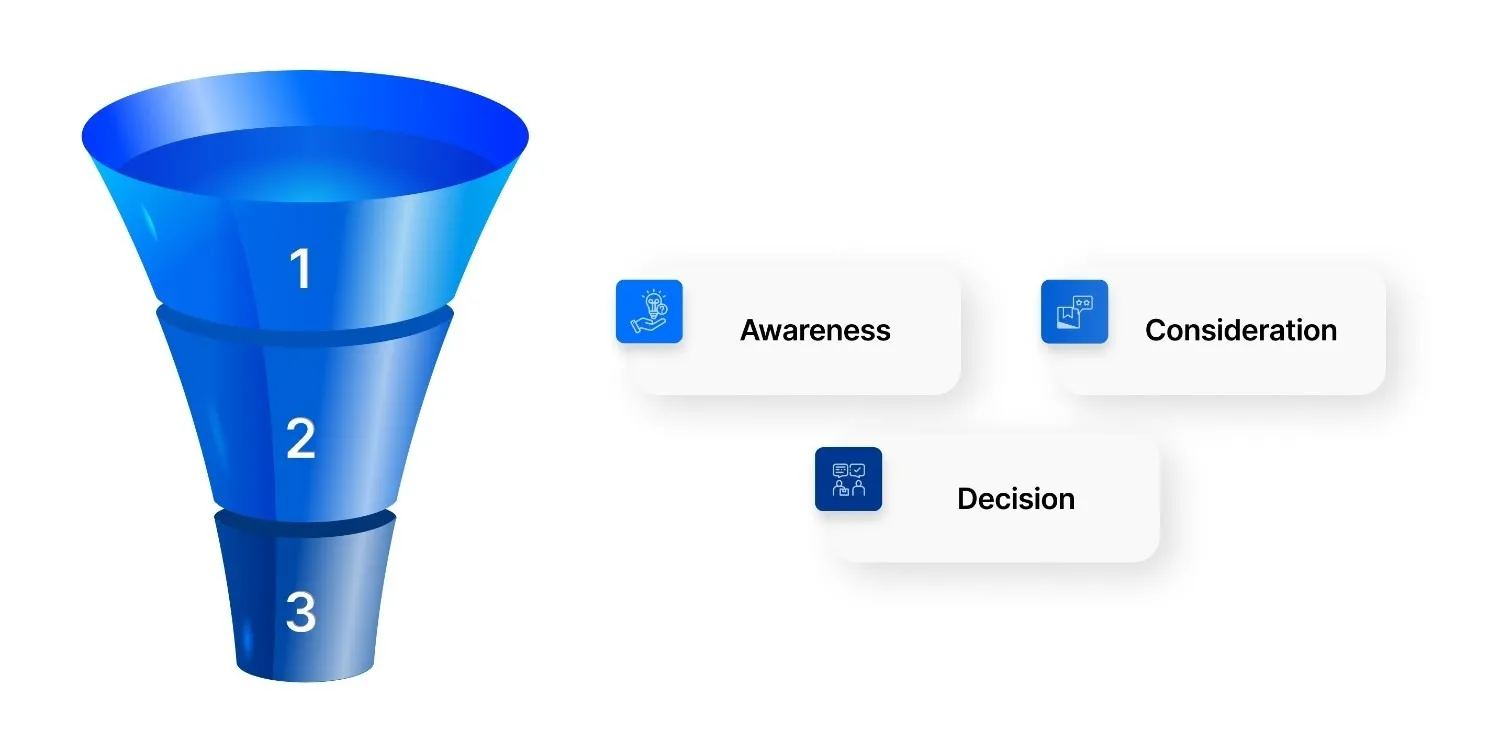
Today’s buyers follow a clear, research-driven path, and your lead generation needs to meet them at every step:
- Awareness: They realize they have a need and start researching.
- Consideration: They compare suppliers, read reviews, and create a shortlist.
- Decision: They reach out, negotiate, and place an order.
Many manufacturers focus only on the decision stage, but by then, preferences are already set. The best strategies ensure your brand is visible and trusted at every stage. Next, let’s look at the strategies that help you do just that.
10 B2B Lead Gen Strategies for Manufacturers
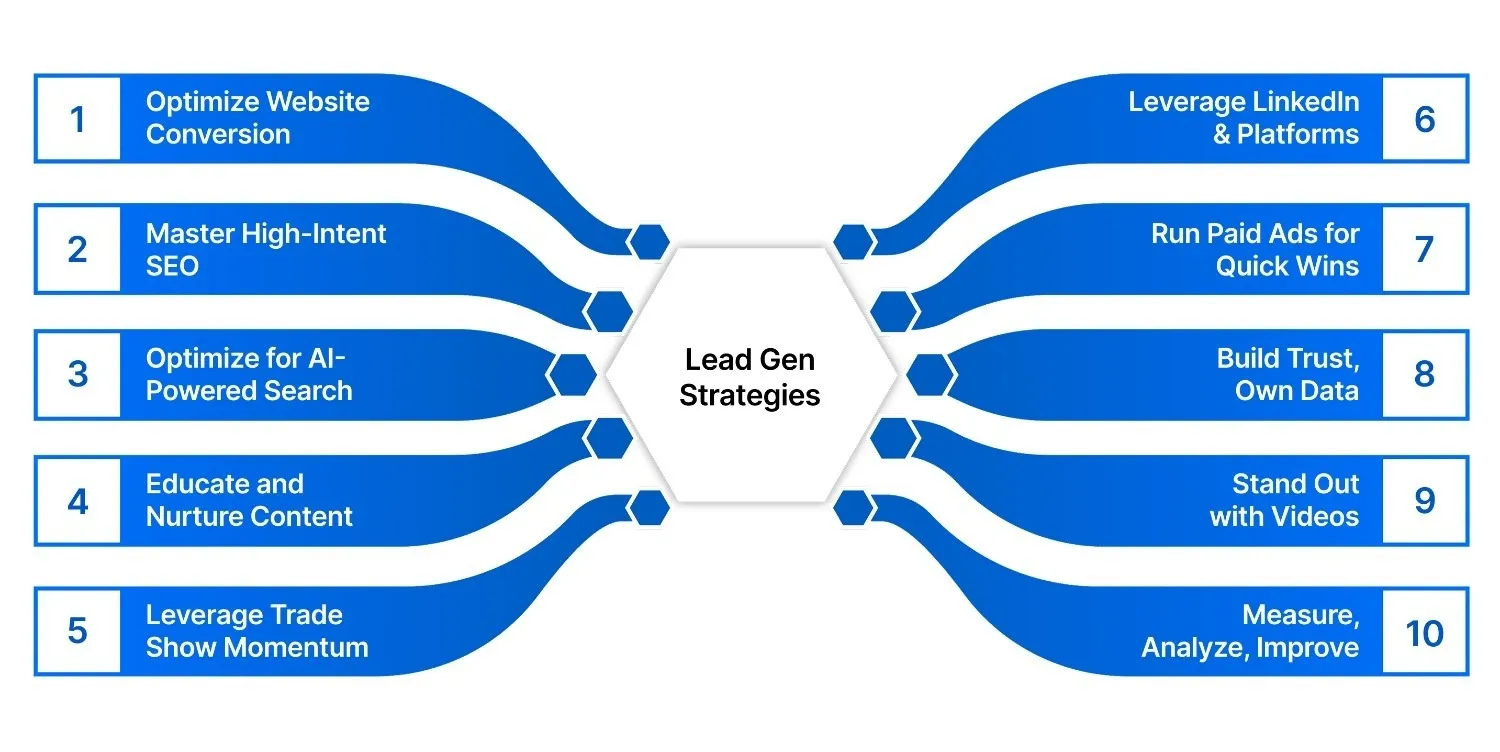
Successful B2B lead generation starts with clarity. You need clear goals, a solid understanding of your ideal buyers, and targeted messaging that speaks to their needs.
Here are 10 proven strategies manufacturers can use to consistently attract and convert high-quality leads:
Strategy #1 - Build a Conversion-Optimized Website
Your website is your #1 sales tool, but most manufacturing websites aren't designed to convert visitors into leads.
What to do:
- Make it fast, mobile-friendly, and easy to navigate.
- Use clear calls-to-action (“Request a Quote”, “Contact Sales”).
- Highlight trust signals like certifications, customer logos, and testimonials.
- Create a clean product catalog with specs, downloadable resources, and inquiry forms.
- Optimize your most-visited pages for high-intent keywords.
Pro tip: Review your analytics to see which pages already get traffic, and optimize those first. Gushwork helps manufacturers revamp websites to rank for niche, high-intent queries.
Strategy #2 - Master SEO for High-Intent Keywords
Your buyers are already searching online, and SEO ensures you show up when they do.
What to do:
- Research bottom-of-funnel (BOFU) keywords like “custom CNC parts supplier Texas.”
- Create individual landing pages for each product and region.
- Add helpful, evergreen content (guides, FAQs, videos).
- Use schema markup to help search engines understand your site.
- Review your rankings and adjust quarterly.
SEO takes time, but compounds into consistent, qualified inbound leads.
Strategy #3 - Optimize for AI-Powered Search
AI-driven tools like ChatGPT, Perplexity, and Google's AI Overviews are changing how buyers discover suppliers. They’re asking full, conversational questions — and expect clear answers.
What to do:
- Write structured, Q&A-style content.
- Use natural, conversational language that directly answers buyer questions.
- Add FAQ sections and semantic markup.
- Audit your performance on AI search with tools like an AI Search Grader.
Being discoverable on AI-powered platforms puts you ahead of competitors who still focus only on traditional search.
Strategy #4 - Publish Content That Educates and Nurtures
B2B manufacturing sales cycles are usually long. Buyers need time to evaluate options, compare specs, and justify budgets. Your content should help guide them through that process, and keep your brand top of mind.
Types of content to create:
- Blog posts answering specific buyer questions.
- Case studies showing real-world results for your customers.
- Virtual factory tours and process videos.
- Whitepapers & spec sheets gated behind lead forms.
- Plan your content calendar around industry trends, seasonal demand, and key trade shows to stay relevant and timely.
Strategy #5 - Leverage Trade Show Momentum
Trade shows are still an important part of the manufacturing world. But too often, manufacturers fail to capitalize on the post-event opportunity.
How to keep the momentum going:
- Create a dedicated landing page for each show to collect leads before, during, and after.
- Use QR codes at your booth to capture visitor details instantly.
- Follow up within 48 hours with personalized emails or LinkedIn messages.
- Run retargeting ads to stay in front of show attendees after the event.
This way, you retain the momentum from trade shows and turn short-term spikes into long-term leads.
Strategy #6 - Use LinkedIn and Industry Platforms
LinkedIn is one of the best platforms for manufacturers to connect directly with decision-makers. With 1 billion users of senior influencers and buyers active every day, it's hard to ignore.
What to do:
- Optimize your company page and team profiles.
- Post thought leadership, customer success stories, and videos regularly.
- Join and contribute to relevant industry groups.
- Use LinkedIn Sales Navigator to build prospect lists and nurture them.
- Run Lead Gen Form ads to capture leads without forcing users off the platform.
Experiment with different creatives and audience segments, and double down on what performs best.
Strategy #7 - Run Paid Ads for Quick Wins
Organic traffic and SEO take time, but paid ads can give results fast. Perfect for trade shows, new product launches, or filling a short-term gap. With over 8.5 billion searches a day, Google is one of the best places for lead generation.
Where to focus:
- Google Ads for high-intent keywords (like “CNC parts supplier Chicago”).
- LinkedIn Ads to reach specific industries, roles, or regions.
- Retargeting ads to re-engage visitors who didn’t convert.
Pro Tip: Make sure your landing pages are fast and mobile-friendly, set a realistic budget, and keep testing creatives and bids to improve ROI.
Strategy #8 - Build Buyer Trust and Own Your Data
Relying solely on platforms like IndiaMART or Alibaba means giving up control and paying commissions. Your goal should be to collect and own your own leads.
How to build trust:
- Use secure, user-friendly forms to capture leads on your site.
- Highlight your certifications, guarantees, and company story.
- Showcase reviews, testimonials, and awards prominently.
- Invest in a CRM to track, organize, and nurture leads effectively.
Strategy #9 - Use Personalized Videos to Stand Out
Sometimes, the smallest personal touch makes the biggest difference. Short, authentic videos sent directly to prospects show that you understand their needs and make your outreach hard to ignore.
What to do:
- Record 30–60 second videos addressing the prospect by name and mentioning something specific about their situation.
- Send via email, LinkedIn, or even text.
- Use video platforms that track views and engagement so you can follow up at the right time.
Use personalized videos for both cold outreach and warm follow-ups; they can improve response rates by 30–90%.
Strategy #10 - Measure, Analyze, Improve
Lastly, none of these strategies will succeed unless you measure and improve them. Lead generation is an ongoing process, and manufacturers who track and refine consistently see the best results.
Key metrics to monitor:
- Website traffic, bounce rates, and conversions
- Form submissions and lead quality
- Keyword rankings and backlinks
- Email open and click-through rates
- Campaign ROI
Set up monthly KPI reviews, double down on what’s working, and tweak underperforming efforts. Use tools like Google Analytics, Search Console, LinkedIn Analytics, and your CRM to stay on top of trends.
Start small, pick 2–3 strategies that suit your business right now, and build from there. The key is to take consistent, measurable action, and you'll see your pipeline grow. Before you move ahead, you need to be aware of dos and don'ts to help you avoid common mistakes.
What Works and What Doesn’t in Manufacturing Lead Generation
B2B lead gen isn't about trying every tactic you can think of. It’s about avoiding the common traps and doubling down on what actually works.
Here’s a simple checklist to keep you on the right track:
Stick to these best practices, and you’ll build a sustainable, high-quality lead gen engine that keeps your pipeline healthy.
Final Thoughts
The manufacturing world is changing fast. Buyers are digital-first, AI is reshaping search, and middlemen are no longer your only option. With the right B2B lead gen strategy, you can build direct, profitable relationships with your customers, all through your own branded presence.
At Gushwork, we help manufacturers modernize their websites, rank higher (on search and AI platforms), and build a steady pipeline of qualified leads, without paying commissions or giving up control.
- Conversion-focused websites
- SEO and AI-ready content
- Full-funnel B2B lead gen strategies for manufacturers

















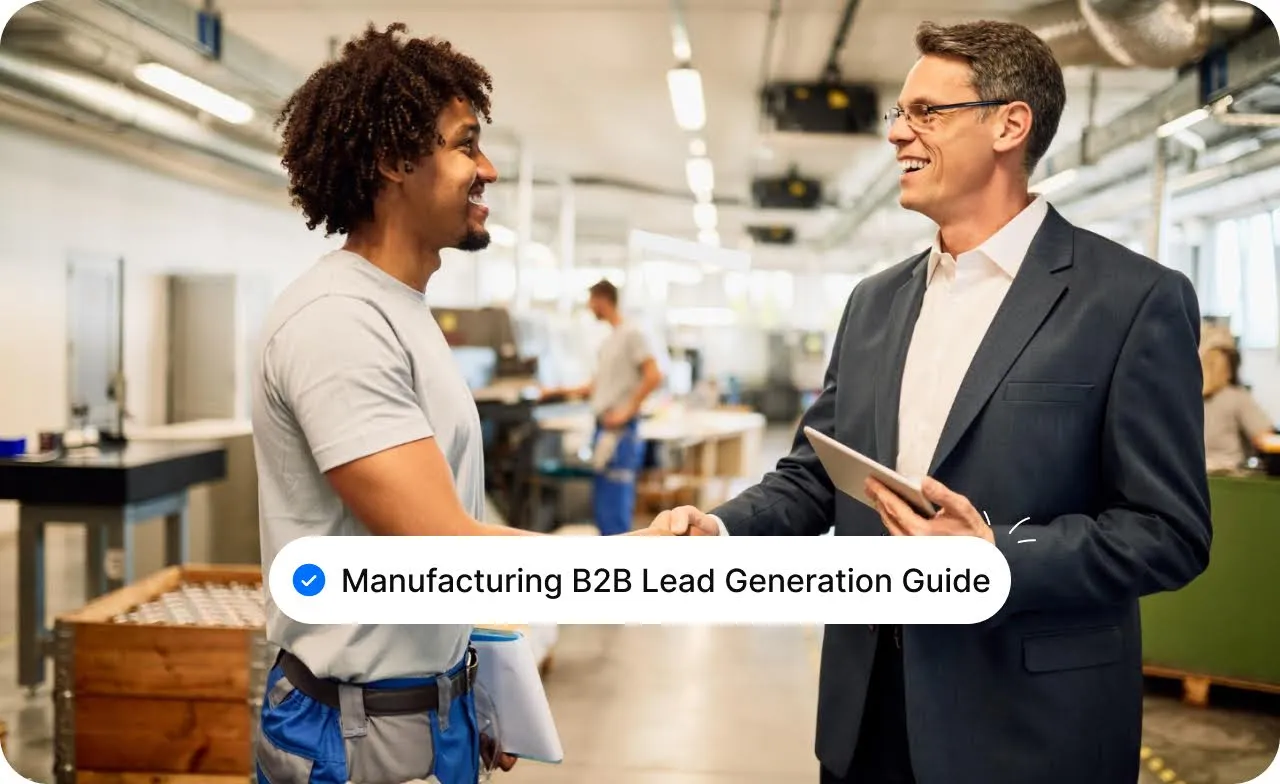




.webp)
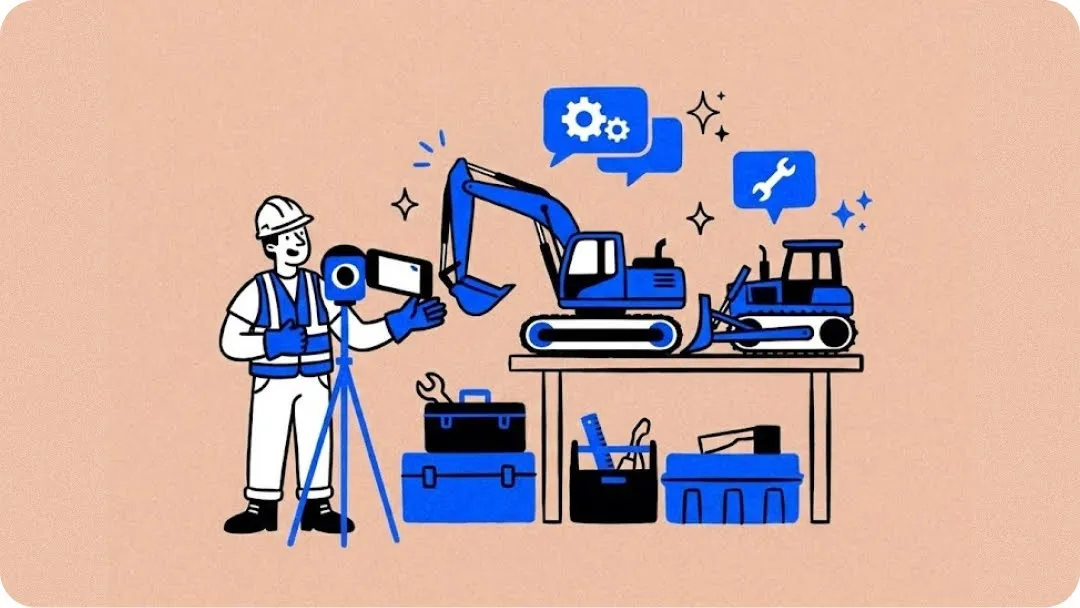







.webp)
.svg)


.svg)
.svg)
.svg)



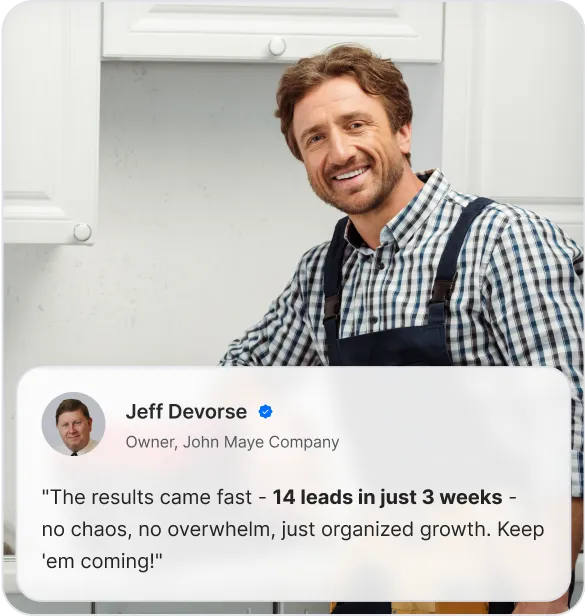
.svg)


